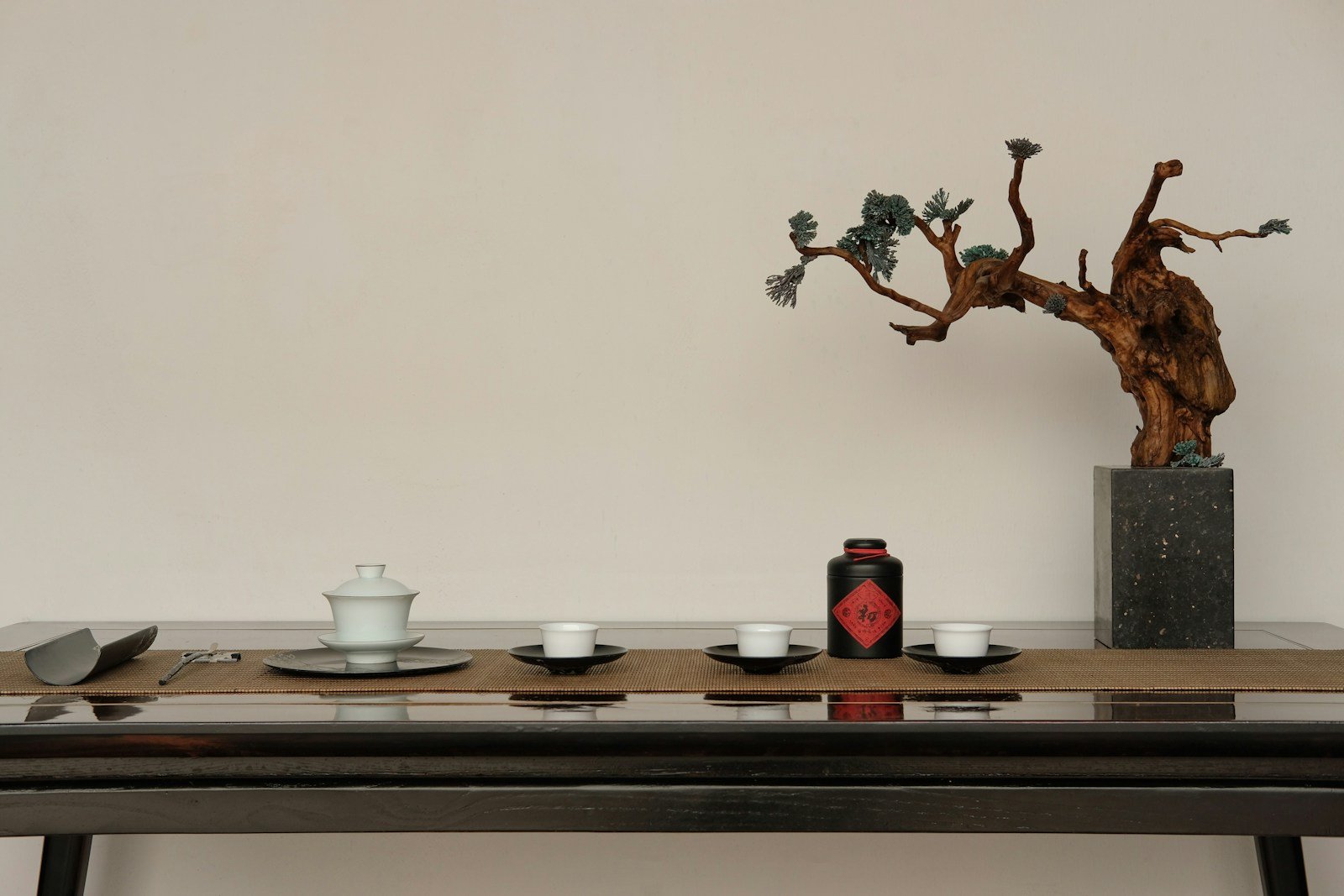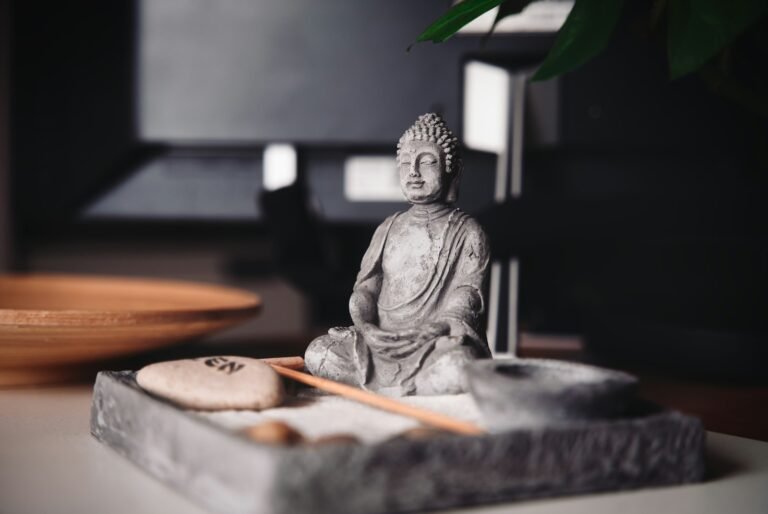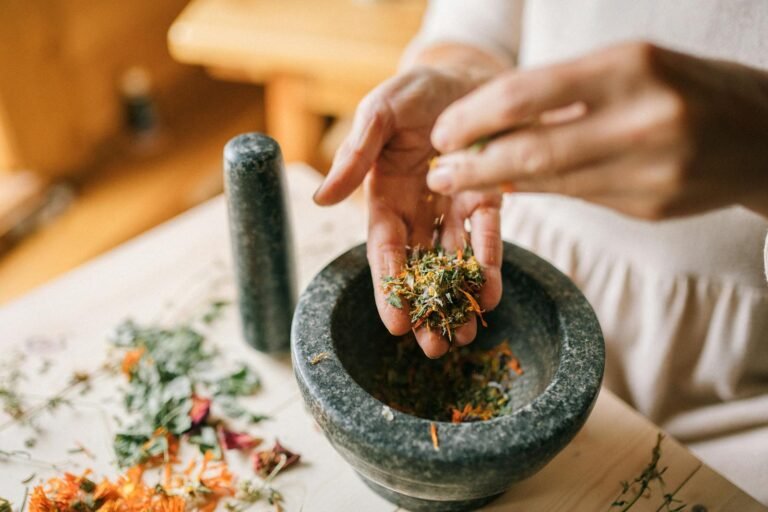How to Incorporate Traditional Chinese Medicine into Your Life
Many people are turning to Traditional Chinese Medicine (TCM) as a holistic approach to health and wellness. By understanding the core principles of TCM, such as the balance of Yin and Yang and the flow of Qi, you can begin to integrate these ancient practices into your daily routine. From dietary adjustments to herbal remedies and acupuncture, you have various options to enhance your overall well-being. In this post, you will discover practical tips to seamlessly weave TCM into your life, promoting a healthier and more balanced lifestyle.
Key Takeaways:
- Explore various modalities of Traditional Chinese Medicine (TCM), such as acupuncture, herbal remedies, and tai chi, to find what resonates with you.
- Emphasize balance in daily life by incorporating TCM principles like the yin-yang theory and the five elements to enhance overall well-being.
- Integrate TCM dietary practices by focusing on whole foods, seasonal eating, and foods that align with your body’s needs according to TCM diagnostics.
- Consider seeking consultation with a qualified TCM practitioner to receive personalized recommendations and treatments tailored to your health concerns.
- Incorporate mindfulness and breathwork practices from TCM into your daily routine to promote mental clarity and emotional stability.
Finding Your Balance: The Core Principles of Traditional Chinese Medicine
To fully embrace Traditional Chinese Medicine (TCM), you need to understand its foundational concepts that promote harmony within your body and mind. One primary focus of TCM is balance, which can be achieved by recognizing and adjusting the dynamic interplay between its core principles. By exploring these principles, you can learn how to harmonize your lifestyle and wellness practices in a way that nurtures your overall health.
Yin and Yang: The Dance of Opposites
Yin and Yang represent the concept of duality, illustrating that everything exists as interconnected and interdependent opposites. In your body, Yin represents qualities such as darkness, coolness, and stillness, while Yang embodies light, warmth, and activity. To achieve optimal health, you must strive to balance both aspects, as an excess or deficiency in one can lead to physical or emotional imbalances. For instance, if you’re feeling overwhelmed and stressed, you may benefit from nurturing your Yin energy through relaxing activities like meditation or gentle yoga, allowing your body to restore its harmony.
Your daily routines can reflect the principles of Yin and Yang by incorporating contrasting activities that bring balance. Engaging in vigorous exercise can harness Yang energy, while taking time for self-care or restorative practices nurtures the Yin within. By being mindful of how your choices affect your internal balance, you can create a lifestyle that supports overall well-being and encourages a sense of peace.
The Five Elements: A Holistic Framework
The Five Elements theory—Wood, Fire, Earth, Metal, and Water—provides a rich framework for understanding the interconnections within your body and environment. Each element corresponds to specific organs, emotions, and even seasons, allowing you to identify patterns and imbalances in your life. For example, the Wood element is associated with the liver and creativity, while the Water element pertains to the kidneys and intuition. Recognizing how these elements manifest in your wellness can empower you to make choices that promote harmony.
Applying the Five Elements to your life can be transformative, as it encourages you to reflect on how different aspects of your existence may relate to specific elements. Think about the colors, foods, and activities that resonate most with you—these can serve as pointers to which elements you may need to focus on. If you find yourself drawn to blue and the sensation of calmness it brings, you might explore ways to strengthen your Water element through deeper hydration or by engaging in reflective practices that enhance your intuition. Adapting aspects of your lifestyle in relation to these elements fosters a more profound connection to your health journey.
The Five Elements framework also allows for seasonal adjustments in your wellness routine. For instance, during the spring months, when the Wood element is prominent, cultivating creativity and expressing oneself can be beneficial. In contrast, the cooler, introspective months of winter might call for nurturing your Water element by practicing self-reflection or embracing more restorative activities. By aligning your lifestyle with the rhythms of the Five Elements, you can create a balanced and dynamic approach to your health and well-being.
Practical Applications: Integrating TCM into Daily Routines
Dietary Wisdom: Nourishing Your Body with TCM
Embracing the dietary principles of TCM can profoundly influence your health. Focus on incorporating seasonal foods that align with your body’s needs at different times of the year. For instance, in winter, warm and hearty meals like soups and stews made with root vegetables nourish your body, supporting your Yang energy. Consider adding warming spices such as ginger and cinnamon to stimulate digestion and circulation. During the summer months, prioritize cooling foods like cucumbers, watermelon, and leafy greens to balance the heat and maintain optimal energy levels.
In addition to seasonal foods, pay attention to the flavors you consume. Each flavor—sweet, sour, bitter, spicy, and salty—has a corresponding impact on your organs. For example, sour flavors can help support liver health, while bitter foods may clear heat and detoxify your system. Aim for a balanced plate that includes a variety of flavors and colors, as this not only nourishes your body but also keeps your meals exciting and satisfying.
Daily Practices: Incorporating Qi Gong and Tai Chi
Integrating Qi Gong and Tai Chi into your daily routine can enhance your physical and mental well-being significantly. These ancient practices involve slow, deliberate movements combined with breath control, promoting the smooth flow of Qi throughout your body. Begin with just 10-15 minutes a day to experience benefits such as improved flexibility, coordination, and balance. This gentle movement helps reduce stress and anxiety while fostering a deep connection with your body’s energy.
Participating in a local class or following online tutorials can provide guidance and structure as you learn the fundamental movements and postures. The social aspect of joining a group also creates a supportive environment that encourages consistency and helps foster a sense of community. As you progress, you may even notice improvements in your focus, mood, and overall vitality, creating a profound, almost meditative experience that brings harmony to your daily life.
Herbal Allies: Understanding and Selecting TCM Remedies
Common Herbs and Their Uses
Many have utilized the rich array of herbs in TCM for centuries, each with its own unique properties and therapeutic applications. Ginseng, for example, is renowned for its adaptogenic qualities, helping to combat stress and increase energy levels. Goji berries, often used in soups and herbal teas, are celebrated for their high antioxidant content, supporting eye health and boosting the immune system. Other popular herbs like ginger and cinnamon not only add flavor to your dishes but also aid digestion and improve circulation, making them versatile additions to your pantry in alignment with TCM principles.
Each herb functions within the framework of TCM to restore balance and harmony to your body. Licorice root is another favorite, often included in many formulations for its harmonizing effect, helping to moderate other ingredients and enhance their benefits. Should you decide to explore TCM remedies, experimenting with these common herbs could be a practical first step in your journey toward holistic well-being.
Safety and Sourcing: Ensuring Quality in TCM Products
Finding reliable sources for TCM herbs is integral to accessing their benefits safely. Quality varies significantly among suppliers, and the efficacy of herbs can become compromised if they are contaminated or misidentified. Seek out established brands that prioritize ethical sourcing, lab testing, and good manufacturing practices. While local herbalists can be invaluable resources, online retailers with strong reputations and transparency about their sourcing methods also play a significant role in ensuring product integrity.
Verifying the sourcing of TCM products not only strengthens your health regimen but also contributes to sustainable practices. Many reputable suppliers offer detailed information about their herbs, including where they harvest them, and the testing they undergo to confirm purity and potency. Ensuring that your herbal allies come from responsible sources allows you to incorporate TCM into your life confidently, knowing you are reaping the full spectrum of their healing properties.
The Mind-Body Connection: Embracing TCM’s Psychological Insights
Emotional Health: The Role of the Shen
Your emotional health is intricately linked to the concept of the Shen, which translates to “spirit” in TCM. The Shen dwells in your heart and represents your consciousness, intellect, and emotional well-being. An imbalance in the Shen can bring about feelings of anxiety, confusion, and even depression. Recognizing this connection offers you a pathway to achieving emotional stability by fostering a harmonious environment for your Shen. Practices like journaling, spending time in nature, and engaging in supportive social interactions can nurture your emotional health, thereby encouraging the Shen to flourish.
Integrating the wisdom of TCM into your emotional well-being means acknowledging the signs that your Shen may be out of balance. You might notice tendencies toward irritability or mood swings when experiencing high stress. By using techniques that calm the mind and soothe the spirit—such as acupuncture or herbal remedies—you’re taking active steps to restore equilibrium. Additionally, incorporating practices like Tai Chi can enhance your emotional clarity while reinforcing your connection to the present moment.
Mindful Practices: Meditation Techniques from TCM
Mindfulness is a central component in TCM, with meditation techniques offering profound benefits for mental clarity and emotional resilience. By engaging in practices such as Qi Gong, you cultivate not only physical strength but also mental stability. Qi Gong combines gentle movements, meditation, and controlled breathing to align your energy and promote a serene state of mind. The rhythmic transition between movement and stillness allows you to integrate the essence of Yin and Yang, fostering balance within yourself.
Another technique worth exploring is the practice of Zen meditation, which may help reduce stress and improve focus. This form of meditation emphasizes the importance of being present, allowing your thoughts to come and go without attachment. Through consistent practice, you might discover an increased capacity to manage life’s challenges, enhancing your overall emotional well-being. Consider setting aside time each day to meditate; even just ten minutes can significantly impact your mental state and help establish a stronger connection to your inner self.
Creating a TCM-Inspired Lifestyle: Incorporating Recommendations
Lifestyle Adjustments: Sleep, Stress, and Self-Care
Integrating the principles of Traditional Chinese Medicine (TCM) into your daily life starts with evaluating and enhancing your sleep patterns, stress management, and self-care routines. Align your sleep schedule with your body’s natural rhythms. According to TCM, the hours between 11 PM and 3 AM are significant for liver detoxification and rejuvenation. Aim to be asleep by 11 PM to support your liver health and overall vitality. Incorporating calming bedtime rituals can significantly improve your quality of sleep; consider herbal teas, such as chamomile or passionflower, which promote relaxation, or gentle stretches to release tension accumulated throughout the day.
Stress management in TCM emphasizes balance among the body’s energies, particularly the flow of Qi. Engage in practices such as tai chi or qigong, which not only promote physical fitness but also enhance mental clarity and emotional health. Additionally, mind-body techniques like meditation can help you achieve a quicker state of relaxation, reducing stress levels and fostering a state of inner peace. Integrating these practices regularly can lead to a more harmonious lifestyle, allowing you to better cope with daily pressures.
Finding a Practitioner: Navigating the Healthcare Landscape
Finding a qualified TCM practitioner involves seeking professionals who possess recognized certifications or licenses in acupuncture, herbal medicine, or other TCM modalities. Look for practitioners who actively engage in ongoing education and remain current with the latest research in the field. You might explore professional associations, such as the National Certification Commission for Acupuncture and Oriental Medicine (NCCAOM), which can guide you towards licensed practitioners in your area. Personal referrals or online reviews can also provide insights into a practitioner’s effectiveness and patient satisfaction.
Take time to consider what you hope to achieve through TCM therapies. Whether it’s alleviating chronic pain, improving digestion, or enhancing overall well-being, articulating your goals can help your practitioner design a more tailored approach. Establishing an open dialogue about your health history and any specific concerns will enable them to provide evidence-based recommendations. Remember that the relationship you build with your TCM practitioner is a partnership focused on your holistic health journey.
Final Words
Now that you are aware of the various components of Traditional Chinese Medicine (TCM), you can begin to seamlessly integrate these practices into your daily routine. Start by exploring practices such as acupuncture, herbal remedies, and dietary adjustments that align with TCM philosophies. As you lean into these methods, stay open to how they affect your overall well-being and energy levels. Maintaining a balanced approach and being mindful of your body’s signals will enhance your experience and understanding of this ancient tradition.
To investigate deeper into the principles and benefits of TCM, consider utilizing resources like the Traditional Chinese Medicine Guide to Healthy Aging. This guide offers valuable insights that can facilitate your journey toward holistic health and wellness. By incorporating TCM into your life, you are not only honoring a time-tested system of healing but also empowering your body and mind to thrive in harmony.
FAQ
Q: What is Traditional Chinese Medicine (TCM) and how can it benefit my health?
A: Traditional Chinese Medicine (TCM) is an ancient medical practice that includes acupuncture, herbal medicine, dietary therapy, and therapeutic exercises like Tai Chi and Qigong. It emphasizes the balance of the body’s energies (Qi) and how this balance affects overall health. By understanding your body and its unique needs, you can use TCM to improve your well-being, manage chronic conditions, enhance immunity, and promote emotional balance.
Q: How can I start incorporating TCM practices into my daily routine?
A: To begin incorporating TCM into your daily life, you can start with simple practices. Introduce herbal teas that align with your health goals, such as ginger tea for digestion or chrysanthemum tea for cooling. Incorporate dietary principles by including seasonal fruits and vegetables that reflect TCM’s philosophy of balance. Additionally, consider practicing Tai Chi or Qigong for physical and mental well-being. It’s also beneficial to consult with a qualified TCM practitioner for personalized recommendations.
Q: Are there specific dietary guidelines in TCM that I should follow?
A: Yes, TCM has specific dietary guidelines that focus on the temperature, flavor, and energetic properties of foods. For example, warming foods like ginger and cinnamon are thought to stimulate digestion, especially in colder seasons. Conversely, cooling foods like cucumber and watermelon can help balance heat in the body during warmer months. It’s also important to eat according to your body type and any underlying health issues. Consulting with a TCM practitioner can help identify the best dietary choices for your specific needs.
Q: What role does acupuncture play in TCM, and can I try it if I am new to traditional practices?
A: Acupuncture is a cornerstone of TCM, involving the insertion of fine needles into specific points on the body to stimulate energy flow (Qi) and promote healing. If you’re new to traditional practices, acupuncture can be an excellent starting point due to its focused approach on health issues such as pain management, stress relief, and overall wellness. It is advisable to seek a licensed and experienced acupuncturist who can guide you through the process and ensure a safe, effective experience.
Q: How can I maintain a balanced lifestyle through TCM principles?
A: To maintain a balanced lifestyle using TCM principles, start by focusing on holistic wellness. This includes a balanced diet incorporating a variety of food types, physical activity through practices like Tai Chi or yoga, and mental wellness through meditation or mindfulness strategies. Pay attention to the changing seasons and adjust your diet and activities accordingly. Prioritizing regular self-care, such as herbal baths or wellness routines, can also help sustain this balance in your life.








